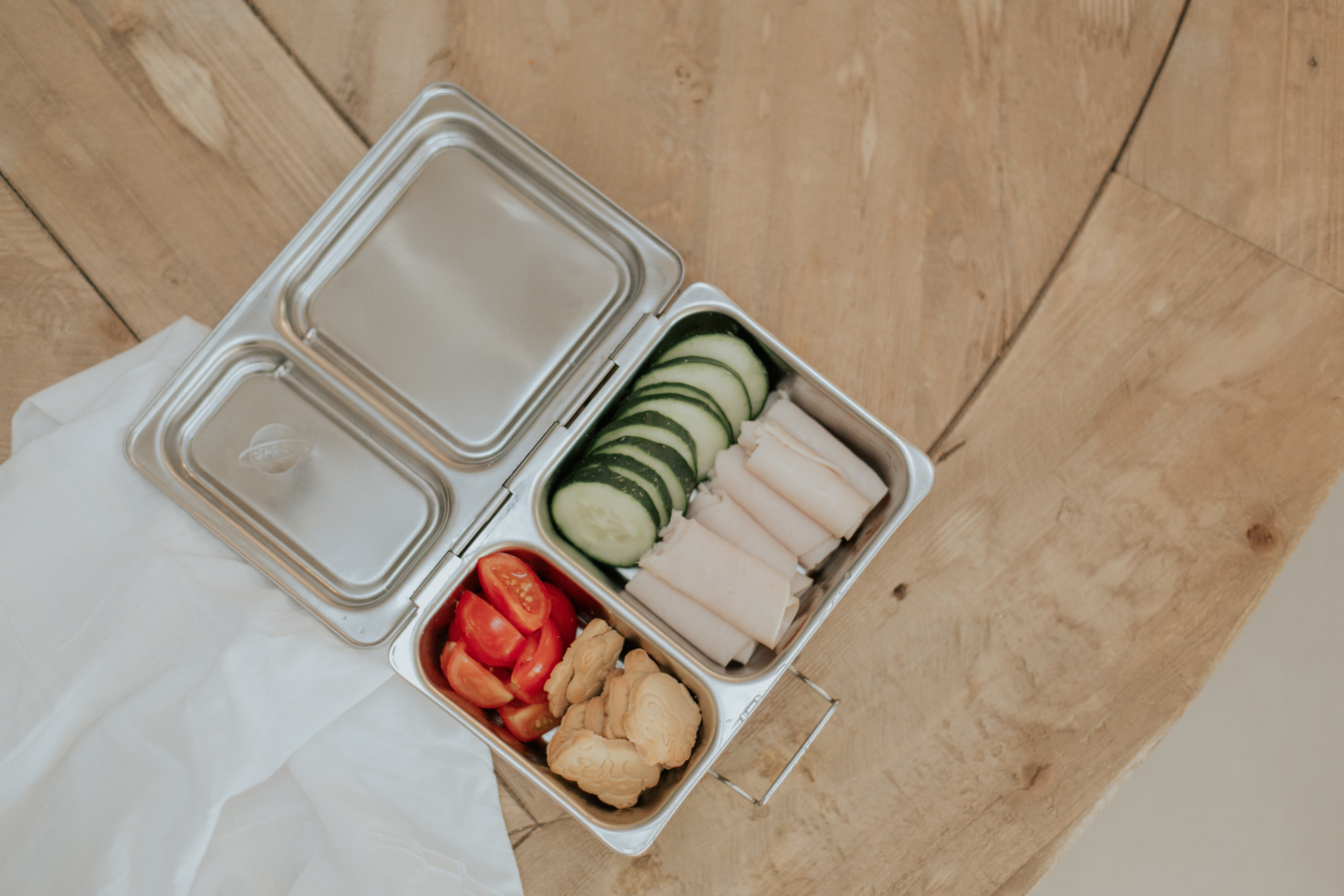
Is my child getting all the nutrients they are supposed to? It’s a daunting thought that most moms ask themselves everyday.
This is especially the case if you have a picky eater. Meeting all the child nutrition guidelines can be stressful!
I recently connected with and became friends with Courtney Bliss, a Pediatric Dietician, who works with kids at the Phoenix Children’s Hospital (and is a mama herself). When we first met, I think I bombarded her with a million questions and asking for her expert tips!
But then I remembered YOU, the one reading this, and figured why wouldn’t I share all of her knowledge?
So let’s get to know Courtney and learn about how to raise healthy kids!
Meet Courtney,
I am a wife, mother to a toddler and two big mutts, food lover and pediatric dietitian. I support families augment their nutrition for improved health. Working with families I also set the framework for balanced nutrition and stress-free meal times to encourage a lifelong healthy lifestyle.
I work with families at various points in their journey — maybe they’re breastfeeding and doing BLW and struggling to get their child to gain weight, or their child has struggled with a complex illness and requires their nutrition via feeding tube, or it’s a toddler who is a pick eater and the family is looking to decrease mealtime stress.
Any chance I have to improve a family’s health and make time at the dinner table more enjoyable I’m very excited!
What is the role of nutrition on the growth & development of a child?
Nutrition during conception/pregnancy and the first two years of life are of the utmost importance. High quality nutrition during this time period sets the framework for brain development and the child’s ability to grow, learn and thrive.
If children do not have the right balance of calories, fat, protein and carbohydrate and even down to the smaller micronutrients they can struggle to keep up with their friends, develop brain tissue (majority of this happens during the first three years of life).
How do you approach kids nutrition?
This really is a struggle for so many moms out there, and I think it’s made worse by some of the blogs aimed at helping families. There is a lot of fear based messaging about food and nutrition which is something I do NOT support or subscribe to. The messaging we use around food is very important, foods should not be labeled or described as good or bad – they are all just different ways to nourish our bodies.
Every time your child eats you have the opportunity to instill balance and you can visualize it when you look at the plate. Is the food all one color or texture or food group? That is not the type of nourishment our bodies need – they need greens and reds and whites and oranges and brown and purple.
As you’re planning meals be sure each plate has produce (fruits and veggies), protein, carbohydrate and fat. You can take it a step further, was the produce from breakfast orange? If so make sure you’re offering some green with lunch or dinner.
How do we find balance between feeding them healthy while allowing them to be kids and eat candy?
When it comes to sweets or “junk food” I take the some days vs every day approach. There are certain foods I expose my child to almost daily – and others that are more infrequent. I don’t labels these foods as treats but I make sure that we have set limits on them and use them as an opportunity to teach mindfulness.
For example, I have picked my son up early from daycare to run errands and stopped off to get something sweet just for us. One recent trip we went to LGO and had a cupcake – we each got a mini cupcake and I asked him to tell me about the colors and the smells. We talked about his day, I kept my phone in m purse and we stretched it out so we truly enjoyed the experience together.
Making sure that we allow our kids to participate in events where these foods are served is important, but it’s also important they are not the bulk of his/her diet. Set boundaries and set the example by treating these foods as you want your child to treat them — your actions are even more important than your words when it comes to establishing a good food relationship for your child.
What are some essential nutrients we need to make sure our kids are having enough of?
While all of these nutrients perform many functions within the body, the general systems they support are bones, immune system and brain. All things kids need to grow strong and healthy!
What do you think about supplements/vitamins for kids?
Supplements/vitamins can be helpful for children but are not necessary with a few exceptions. An exclusively breastfed infant should get vitamin D starting soon after birth and an iron/vitamin D supplement starting at approximately 6 months of age.
Beyond one year of age if a child eats a varied diet (fruits and vegetables and proteins daily and dairy) then supplements/vitamins may not be necessary*. Probiotics, vitamin D, iron and omega-3 are wonderful nutrients to be sure your family is consuming. In general all our nutrients should be coming from it’s natural state as a whole food item vs a supplement. However, if you struggle to get your kiddos to eat fatty fish or meats at all you may want to add a supplement.
- Iron/multivitamin: Novaferrum makes a great one (yay Amazon prime and the taste is great = no fighting with kiddos) but for kiddos > 4 years old I recommend changing over to Flinstones Complete
- Probiotics: Culturelle has the strain most commonly tested.
- Omega-3’s: Nordic Naturals is my go-to (I even use their oils for my dogs!!)
Important: I never recommend gummy multivitamins as they are not a well-balanced option (the stability of some micronutrients prevent them from being added to the gelatin of a gummy).
In your opinion should our kids be eating gluten-free, lactose-free, etc.?
No, children (and adults for that matter) should not be consuming trends like this without a physician-confirmed diagnosis. In fact, it can be detrimental to the individuals overall health and for a child it can slow their development and growth.
Here’s a great article about this, but there have been many studies done in recent years which consistently document deficiencies in otherwise healthy children following these diets without medical reason.
What do you do if you have a picky eater?
Have patience and persistance. I could write pages and pages on this, but it boils down to the parents.
It is your job to decide What, When, Where a child eats. It is their job to decide How Much.
For more information on this division of responsibility in feeding please visit the Ellyn Satter Institute. A pediatric dietitian can help provide your family with more individualized support to improve your child’s intake while helping to liberalize their diet. Another important piece is making sure the adults of the house are eating a variety of healthy foods and your child(ren) sees that.
5 Nutritious Store Bought Snacks For Kids
- Fruit!! – clementines, apples, bananas, grapes
- Vegetables – snap peas, broccoli, cherry/grape tomatoes, jicama sticks
- Cliff Z Bars
- Whole-Fat Greek Yogurt
- Fruit & Veggie Chips
5 Healthy Kid-Friendly Recipes
- Nap Time Brisket
- Green Monster Smoothie
- Oatmeal Sandwich Bread
- Milanese Cutlets (homemade chicken nuggets of your & your child’s dreams)
- Molasses Cookies (yes, dietitians let their kids eat cookies!!)
- An extra just incase — This is the best way I have found to get my little one to eat and enjoy tofu.
What ares some good resources for easy healthy recipes for the whole family?
I have lots of easy and delicious recipes on my site, Feeding Bliss, like the brisket recipe above. I consistently go to Dinner A Love Story (website and books). Her recipes are easy and delicious and provide endless inspiration. Eating Well has some great options, and I really like the Pioneer Woman’s <20 minute meals though I frequently add extra vegetables to her recommendations.
*Disclaimer: The information above is not meant to replace consultation or discussion with the child’s pediatrician or dietitian. This is general information and you should always consult with a doctor on the specific appropriateness for you child.




This post is worth reading! I really learned a lot from this! Thanks for posting!
Thanks for this informative post. I also have just 1 day for the kids when they eat some candies and junk food, just the right amount that they can eat. Ive been feeding them veggies and fruits most of the time as we get most of their nutrients from those foods.